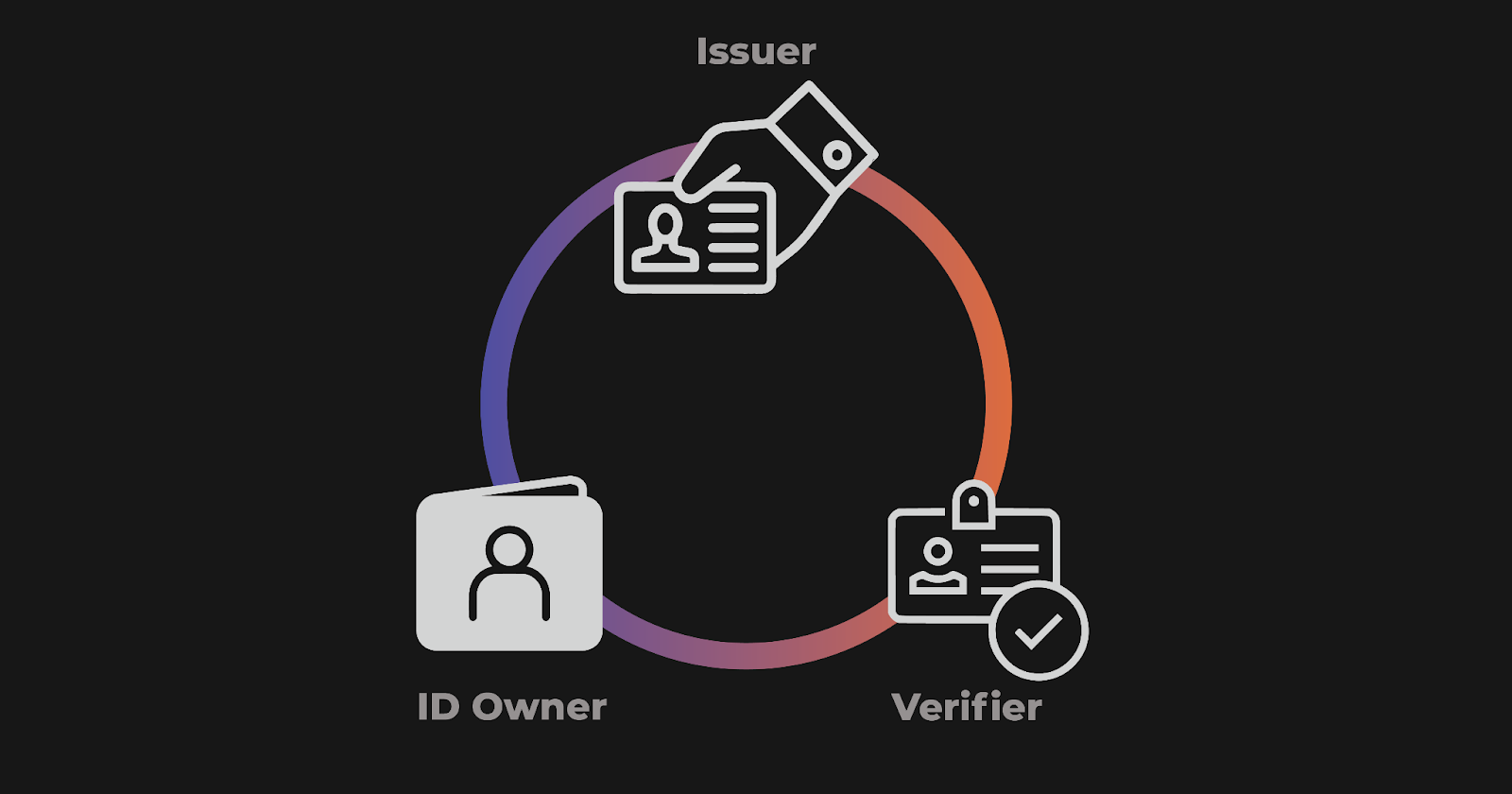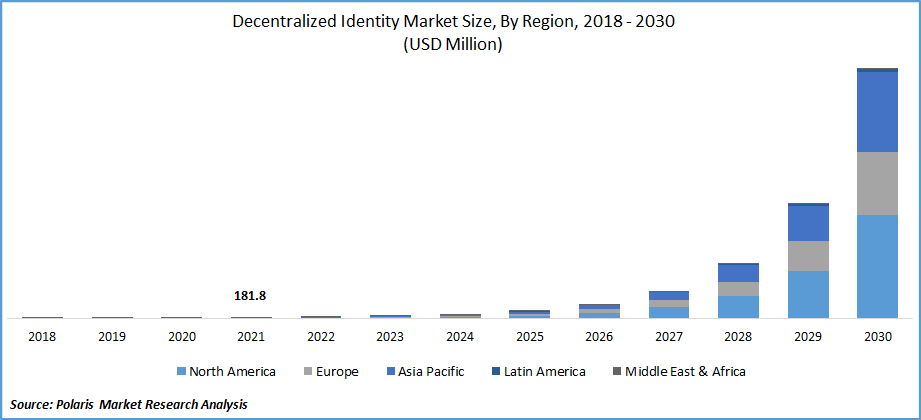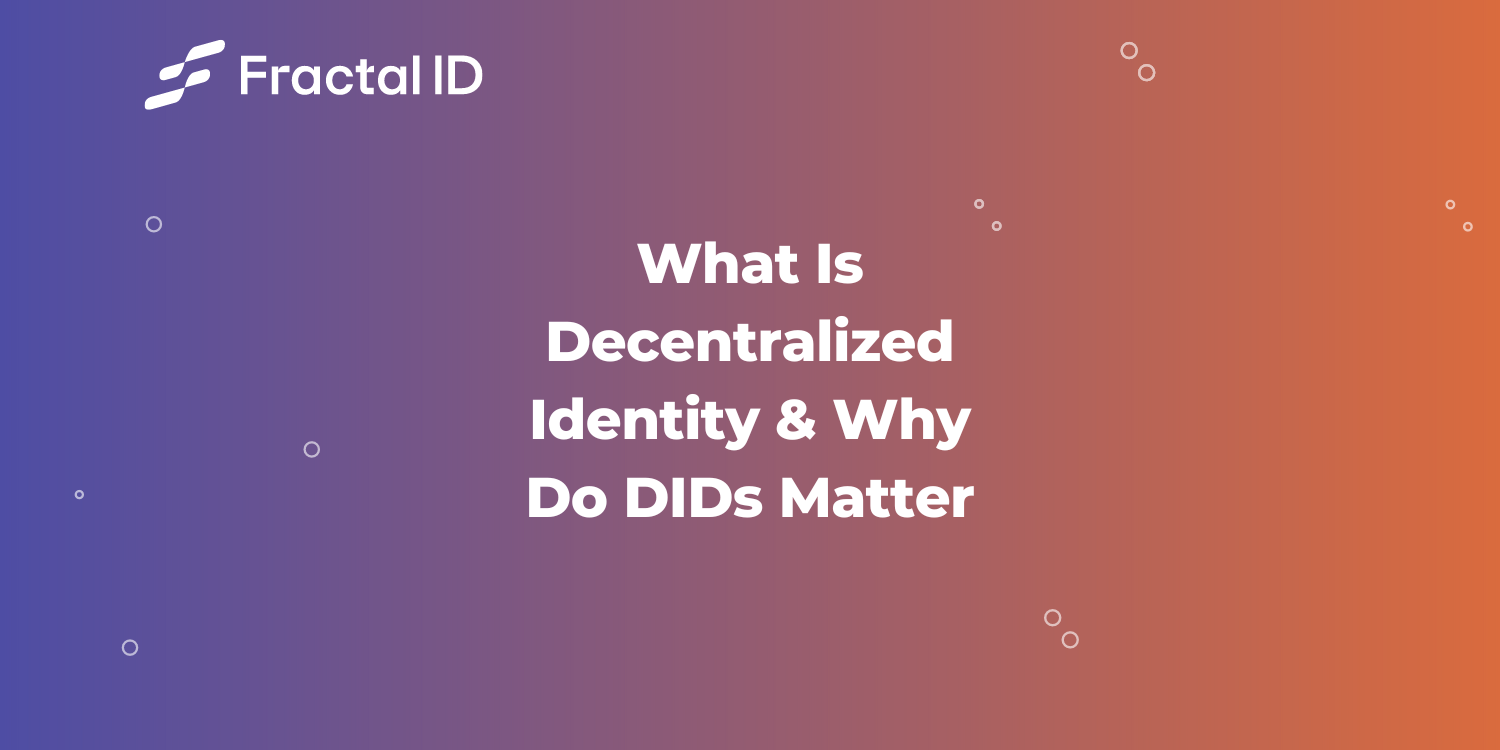In recent years, there has been a growing interest in decentralized identity or DIDs as a potential solution to the challenges posed by traditional identity systems. Digital identifiers (Digital IDs) are pointers to attributes in an individual’s identity (e.g. passport number in a passport, age in an ID) that prove an individual’s identity and verify their right to access services or information. These digital IDs, which include numerous information about individuals such as their age, gender, or address, are typically owned by large companies who manage and analyze this data for marketing and advertising purposes.
Decentralized IDs are digital identifiers that aim to put users back in control of their identity and associated attributes. In this blogpost we will explore what decentralized identities are, how they differs from traditional identity systems, and why they are an important development in the world of identity management.
What is a Decentralized Identity?
Decentralized IDs (DIDs), also known as decentralized identifiers, are digital IDs where individuals’ identifiers are replaced with self-owned IDs stored on the blockchain, and their associated data is stored on personal devices.
You can create your own DID, or have a DID provider, such as Fractal, create one for you. Then, for verification, you turn to issuers (e.g. government, school, bank) to provide claims against it.
Unlike traditional digital IDs, DIDs are not stored in the databases of vendors or organizations, therefore, are less vulnerable to data breaches or theft. These DIDs have numerous use cases such as enabling credible and private customer KYC, eVoting, tax payments, event check-ins, etc.
How does a Decentralized Identity work?
Let’s take the following example to describe the working methodology of a DID. If you are signing a lease for a car, you need to provide the leasing company with different documents about your credentials, work contract, and bank credit score. In turn, the leasing company needs to verify this information.
If you own a DID, your wallet will generate unique identifiers of your credentials to which you own a private key. The public key of these identifiers is then published to a distributed ledger.
You can present to the leasing office these verifiable decentralized identifiers of your credentials which, at any time, you can revoke and remove their access to it.
It is also important to note that you can share specific sections of your data with the leasing company. For example, using a DID you can share your income information with the leasing office without needing to share your entire contract details with them.
In a nutshell, a decentralized ID has 3 aspects:
- The issuers (e.g. government, university, corporate)
- The verifier (i.e. third party who verifies the credentials)
- The ID owner

Why are DIDs important?
Decentralized identities have been rising in popularity in the past years due to their ability to maintain the integrity of the data as well as the privacy of end-users.

The importance and benefits of decentralized identity come from 3 aspects:
1. Data Ownership
Today, most of us voluntarily share our personally identifiable information (PII) (e.g. name, age, phone number, etc.) with brands in exchange for easy and personalized experiences.
For example, when you create an Uber’s account, you provide Uber with your PII, and most likely your credit card information in exchange for having an easy payment method without needing to get cash out of your wallet or tap in your credit card number every time you hail a taxi.
Uber, on the other hand, stores this data in their databases, and leverages it to analyze customers’ behavior, detect trends and make profit from displaying ads or offering surge prices.
If Uber were to leverage DIDs to onboard their customers, they would only be able to access the selected data disclosed by the user for the sake of onboarding.
2. Data Protection
Sharing personal data with businesses increases its exposure to cyber-attacks and breaches. It’s been reported that nearly 33 billion accounts will be breached in 2023 with the cost of these breaches predicted at $ 8 trillion.
Leveraging DIDs to communicate your personal data with businesses protects your data from being stored on centralized and breachable databases. However, this would leave you responsible for protecting your data that is stored on your personal devices.
This represents an opportunity for businesses to ensure their compliance with global data privacy regulations while maintaining credible and verifiable KYC journeys.
3. Unified Identities
DIDs provide users and businesses with a single version of the truth as they represent all the information about an individual including their demographics, financials, and social status. This eliminates the need to create multiple identities for different platforms as we do today (e.g. for each social media platform we have a different account).
How does Fractal ID enable this?
For the data owners and ID users, Fractal ID technology enables transparency and puts the power back into the hands of users by allowing them to create IDs and store their credentials within their own wallet and choose who those credentials are shared with.
Additionally, Fractal ID serves as a credible ID verifier providing ID document verification, liveness checks, face matches, source-of-wealth verification, AML checks, and proof of address checks. Thus, ensuring that users have a safer web3 experience, and helping businesses avoid ID scams, mitigate data breaches, and comply with data privacy regulations.
